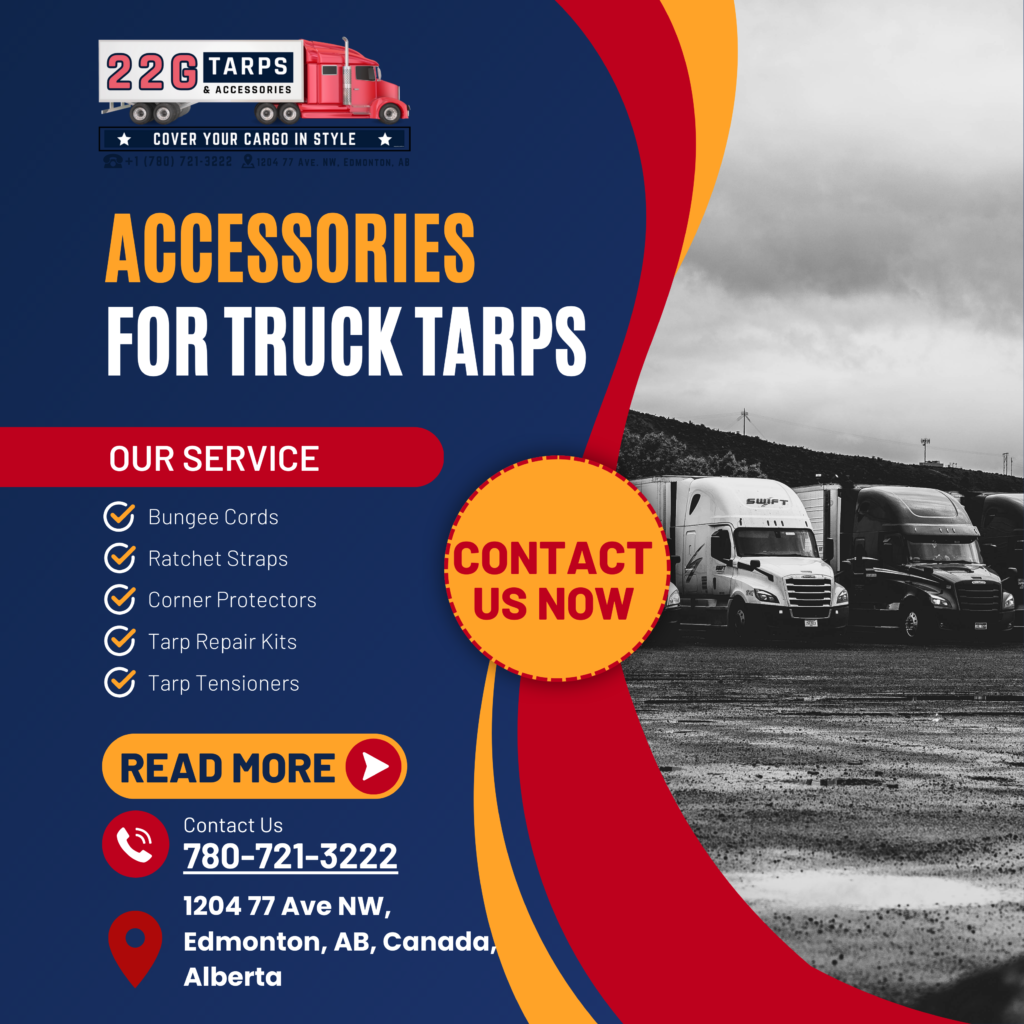
Difference Between Vinyl Truck Tarps and Canvas Tarps: Vinyl truck tarps and canvas tarps are two popular options for covering and protecting cargo, equipment, and goods. While both serve the purpose of providing a protective barrier, they have distinct characteristics and are suited for different applications.
What are Vinyl Truck Tarps?
Vinyl truck tarps, also known as PVC tarps, are made from polyvinyl chloride material. These tarps are highly durable and offer excellent resistance to harsh weather conditions, making them ideal for long-haul transportation and outdoor storage.

Advantages of Vinyl Truck Tarps
- Durability and Weather Resistance: Vinyl tarps are known for their exceptional durability and ability to withstand heavy usage and extreme weather conditions. They provide reliable protection against moisture, UV rays, and abrasion.
- Easy Maintenance: Vinyl tarps are relatively low-maintenance. They can be easily cleaned using soap and water, and stains or dirt can be wiped off effortlessly. They are also resistant to mold and mildew.
- Versatility: Vinyl tarps come in various colors, sizes, and configurations, making them suitable for different applications. They can be customized to fit specific truck bed sizes and used to cover equipment, machinery, and outdoor furniture.
Disadvantages of Vinyl Truck Tarps
- Cost: Vinyl tarps tend to be more expensive compared to canvas tarps due to the high-quality material and added features for weather resistance.
- Weight: Vinyl tarps are heavier than canvas tarps, which can impact fuel efficiency and payload capacity.
What are Canvas Tarps?
Canvas tarps are made from woven cotton or polyester fabric, offering a more traditional and natural option for covering and protection.
Advantages of Canvas Tarps
- Breathability: Canvas tarps allow air circulation, preventing condensation and reducing the risk of mold or mildew growth. They are suitable for covering items that require ventilation.
- Eco-friendly: Canvas tarps are made from natural materials and are biodegradable, making them an environmentally friendly option.
- Cost-effectiveness: Canvas tarps are generally more affordable compared to vinyl tarps, making them a cost-effective solution for temporary coverage.
Disadvantages of Canvas Tarps
- Limited Weather Resistance: Canvas tarps provide moderate water resistance but are not fully waterproof. Prolonged exposure to heavy rain or extreme weather may result in water seepage.
- Maintenance Requirements: Canvas tarps require regular maintenance to prevent mold or mildew growth. They should be thoroughly dried after exposure to moisture and stored in a dry area when not in use.
Explore Further
In conclusion, vinyl truck tarps offer exceptional durability, weather resistance, and easy maintenance, but they come at a higher cost and weight. Canvas tarps provide breathability, eco-friendliness, and cost-effectiveness but have limited weather resistance and require regular upkeep. Assess your specific needs and consider factors such as durability, weather conditions, and budget to choose the most suitable tarp for your application.


